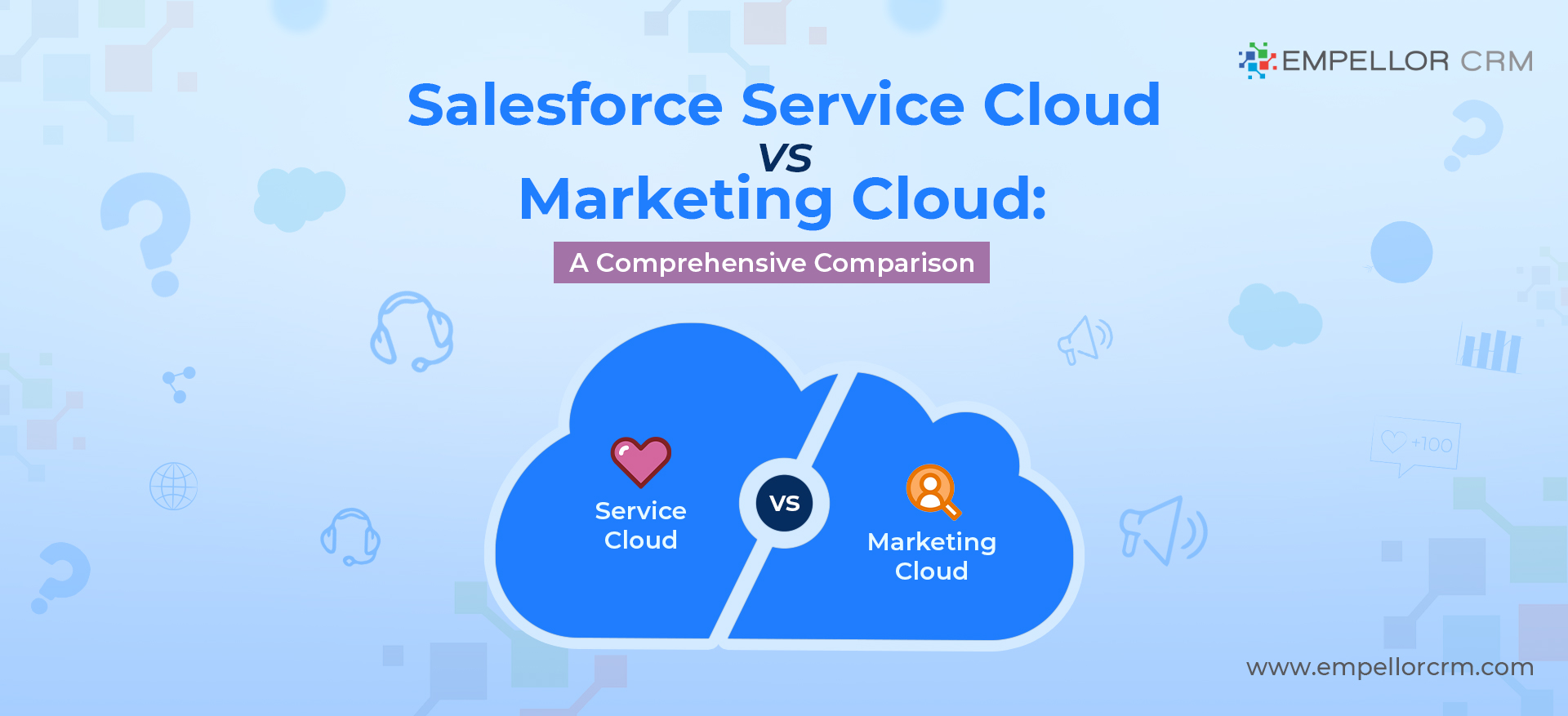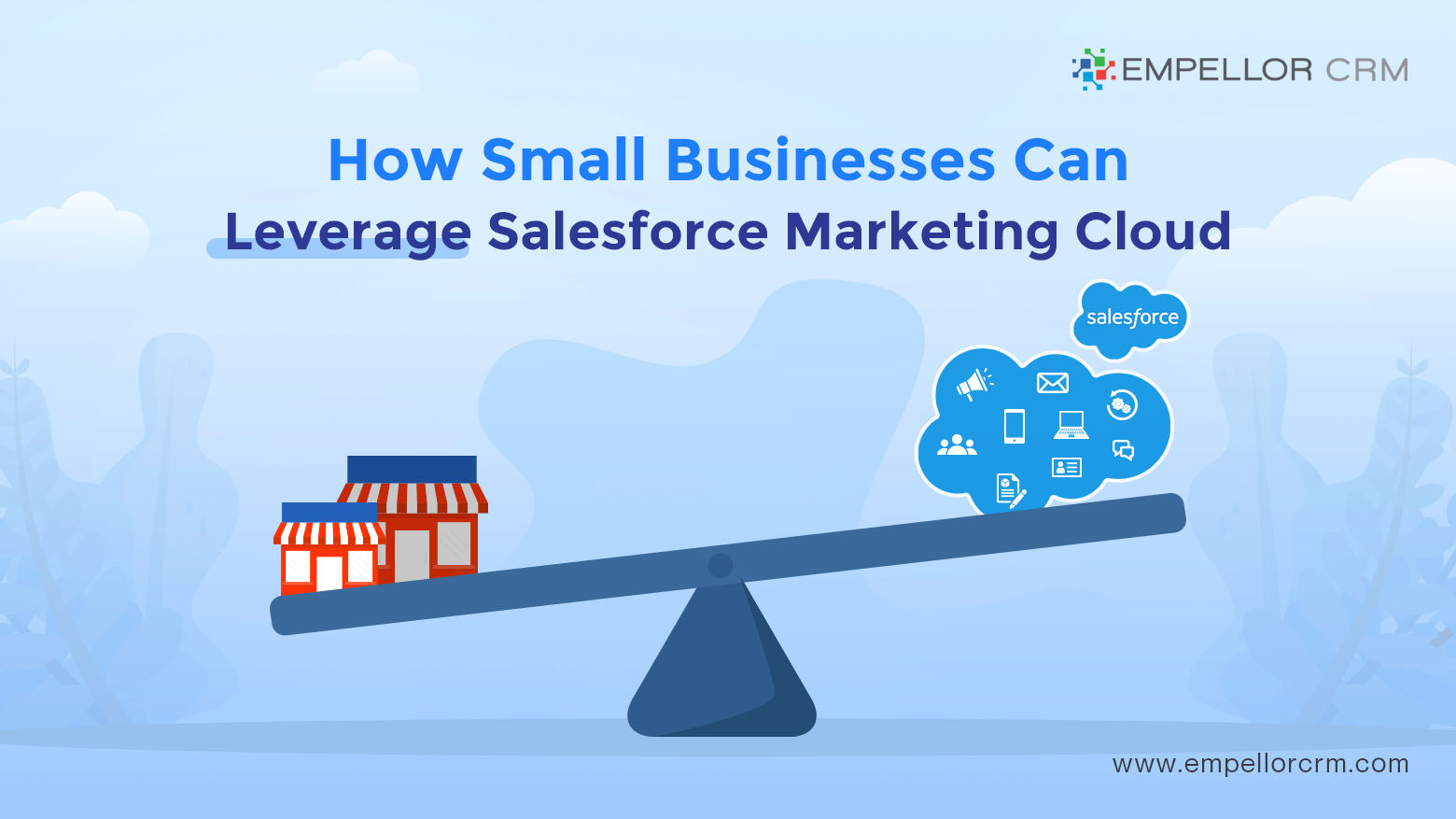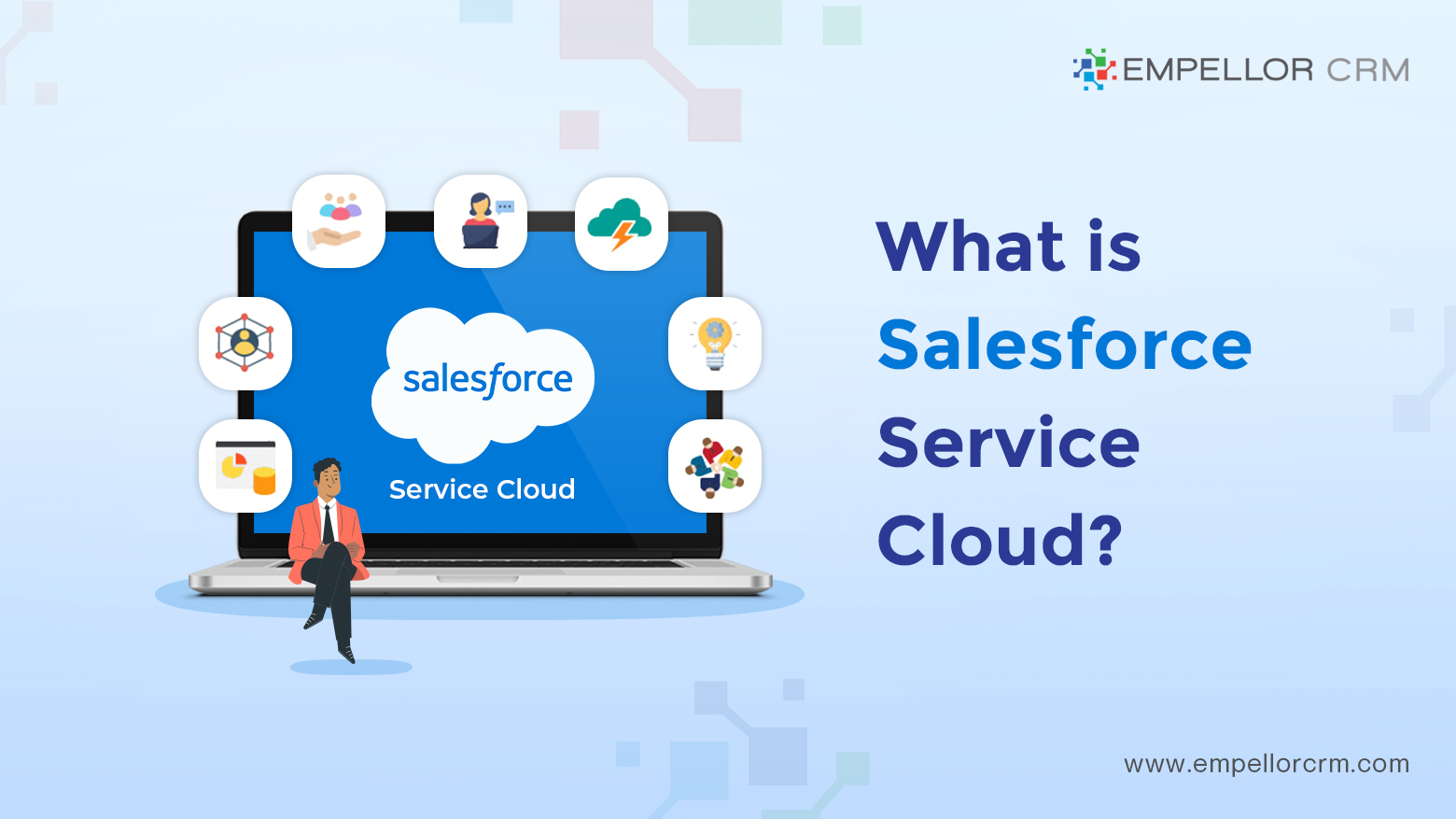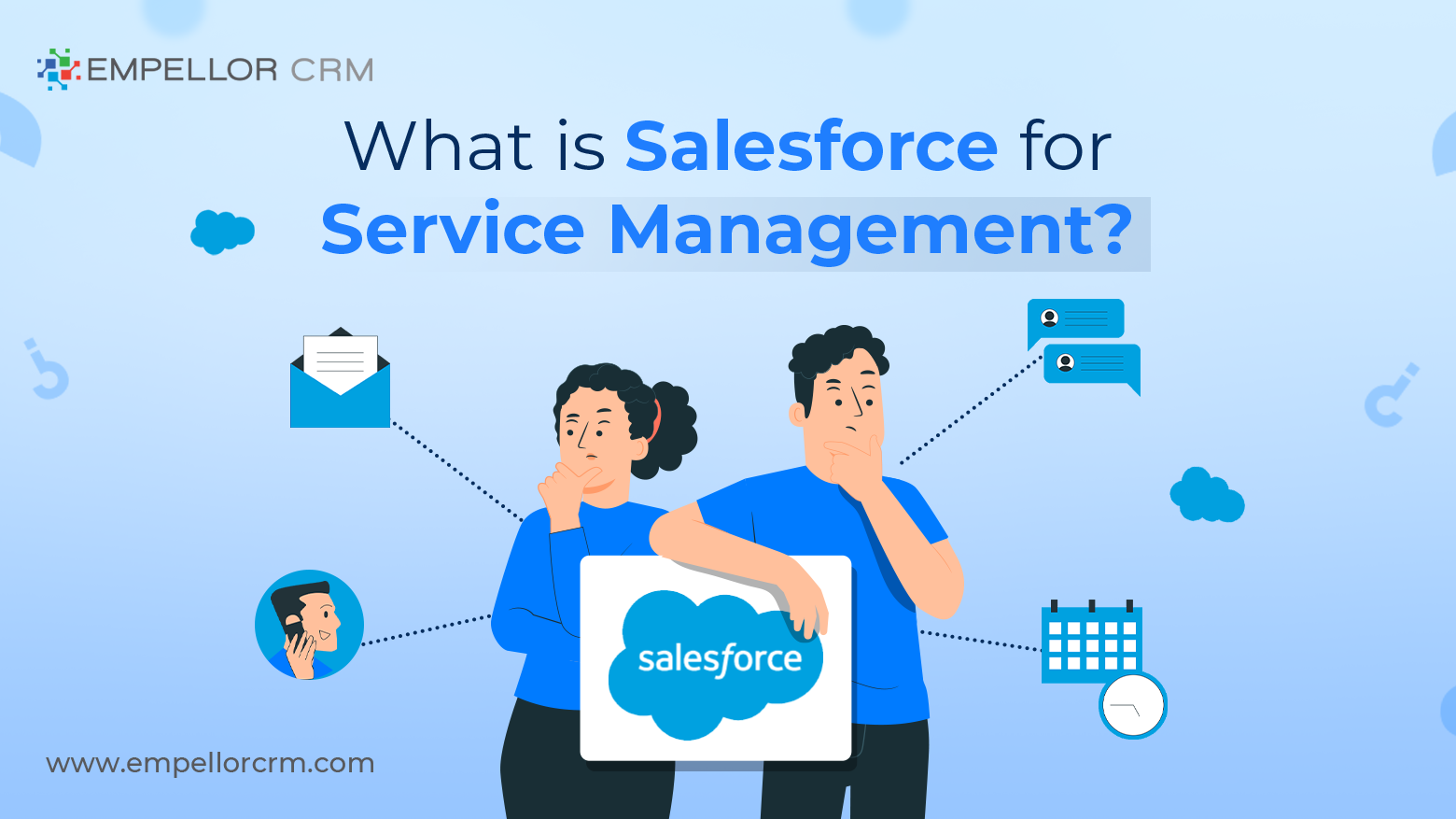Claim your free copy of the book CRM Shouldn’t Suck
Claim your free copy of the book CRM Shouldn’t Suck
Salesforce Service Cloud vs Marketing Cloud: A Comprehensive Comparison

In the realm of customer relationship management (CRM), Salesforce offers a variety of solutions tailored to meet different business needs. Among these, Salesforce Service Cloud and Salesforce Marketing Cloud stand out. Each caters to specific aspects of customer engagement and service delivery. In this blog post, we’ll delve into the key differences between Salesforce Service Cloud and Marketing Cloud, helping you understand which might be the best fit for your business. Our main key phrase, “Salesforce Service Cloud vs Marketing Cloud,” will guide this comparison.
Introduction to Salesforce Service Cloud
Salesforce Service Cloud is designed to enhance customer service operations. It provides tools that enable businesses to offer efficient, personalized support to their customers. By leveraging Service Cloud, companies can manage customer interactions across various channels, automate service processes, and gain insights through analytics.
- Key Features of Salesforce Service Cloud:
- Omni-Channel Support: Integrates customer interactions across phone, email, chat, and social media.
- Case Management: Tracks and resolves customer issues efficiently.
- Knowledge Base: Provides a centralized repository of information to assist service agents and customers.
- Automation: Uses AI and workflows to streamline service processes.
- Analytics: Offers detailed insights into service performance and customer satisfaction.
Introduction to Salesforce Marketing Cloud
Salesforce Marketing Cloud, on the other hand, focuses on marketing automation and customer engagement. It helps businesses create personalized marketing campaigns, manage customer journeys, and analyze marketing performance. Marketing Cloud is ideal for businesses aiming to enhance their marketing strategies and foster customer loyalty.
- Key Features of Salesforce Marketing Cloud:
- Email Marketing: Designs and automates email campaigns.
- Social Media Marketing: Manages and analyzes social media interactions.
- Customer Journey Mapping: Creates personalized customer journeys.
- Data Management: Centralizes and analyzes customer data for targeted marketing.
Analytics: Provides insights into campaign performance and customer behavior.
Salesforce Service Cloud vs Marketing Cloud: Key Differences
When comparing Salesforce Service Cloud vs Marketing Cloud, it’s essential to understand their distinct purposes and functionalities. While both aim to improve customer experiences, they do so in different ways.
- Purpose and Focus:
- Service Cloud: Primarily focuses on enhancing customer service and support.
- Marketing Cloud: Concentrates on marketing automation and customer engagement.
- Core Functions:
- Service Cloud: Manages customer service interactions, cases, and service processes.
- Marketing Cloud: Automates marketing campaigns, manages customer journeys, and analyzes marketing data.
- Target Users:
- Service Cloud: Ideal for customer service teams looking to streamline support operations.
- Marketing Cloud: Suitable for marketing teams aiming to optimize their marketing efforts.
- Integration Capabilities:
- Service Cloud: Integrates with other Salesforce solutions like Sales Cloud and third-party service tools.
- Marketing Cloud: Integrates with Salesforce CRM and various marketing platforms.
- AI and Automation:
- Service Cloud: Utilizes AI to predict customer needs and automate service tasks.
Marketing Cloud: Leverages AI to personalize marketing messages and automate customer journeys.
Benefits of Using Salesforce Service Cloud
Salesforce Service Cloud offers numerous benefits for businesses aiming to enhance their customer service operations. By implementing Service Cloud, companies can:
- Improve Response Times: With omni-channel support, agents can respond to customer inquiries faster.
- Enhance Agent Productivity: Automation tools reduce manual tasks, allowing agents to focus on complex issues.
- Increase Customer Satisfaction: Personalized support and efficient case management lead to happier customers.
- Gain Insights: Analytics provide valuable data on service performance and customer satisfaction.
Benefits of Using Salesforce Marketing Cloud
Salesforce Marketing Cloud brings significant advantages for businesses looking to optimize their marketing efforts. By using Marketing Cloud, companies can:
- Create Personalized Campaigns: Tailor marketing messages to individual customer preferences.
- Automate Marketing Processes: Streamline campaign management and execution with automation tools.
- Boost Engagement: Engage customers across multiple channels, including email, social media, and mobile.
- Analyze Performance: Gain insights into campaign effectiveness and customer behavior to refine strategies.
Use Cases: Salesforce Service Cloud vs Marketing Cloud
Understanding the specific use cases for Salesforce Service Cloud and Marketing Cloud can further clarify their differences.
- Service Cloud Use Case:
- Scenario: A telecommunications company receives a high volume of customer inquiries daily. By implementing Service Cloud, they can manage these interactions across phone, email, and social media, ensuring quick and efficient responses. The knowledge base and automation features help agents resolve issues faster, improving overall customer satisfaction.
- Scenario: A telecommunications company receives a high volume of customer inquiries daily. By implementing Service Cloud, they can manage these interactions across phone, email, and social media, ensuring quick and efficient responses. The knowledge base and automation features help agents resolve issues faster, improving overall customer satisfaction.
- Marketing Cloud Use Case:
Scenario: An e-commerce business wants to enhance its customer engagement. By using Marketing Cloud, they can create personalized email campaigns, manage social media marketing, and analyze customer journeys. This leads to higher conversion rates and stronger customer loyalty.
Choosing Between Salesforce Service Cloud and Marketing Cloud
Deciding between Salesforce Service Cloud vs Marketing Cloud depends on your business goals and priorities. If your primary focus is on providing exceptional customer service and support, Service Cloud is the ideal choice. However, if you aim to enhance your marketing efforts and customer engagement, Marketing Cloud is the better option.
For businesses that require both robust customer service and advanced marketing capabilities, integrating both solutions can provide a comprehensive CRM strategy. By leveraging the strengths of each platform, companies can deliver outstanding customer experiences and drive business growth.
Conclusion
In conclusion, Salesforce Service Cloud and Marketing Cloud offer powerful tools to enhance customer service and marketing efforts. By understanding the key differences between Salesforce Service Cloud vs Marketing Cloud, you can make an informed decision on which solution best meets your business needs. Both platforms provide unique benefits, and integrating them can create a seamless and effective CRM strategy. Whether you choose Service Cloud, Marketing Cloud, or both, leveraging Salesforce’s capabilities can significantly improve your customer engagement and satisfaction.


